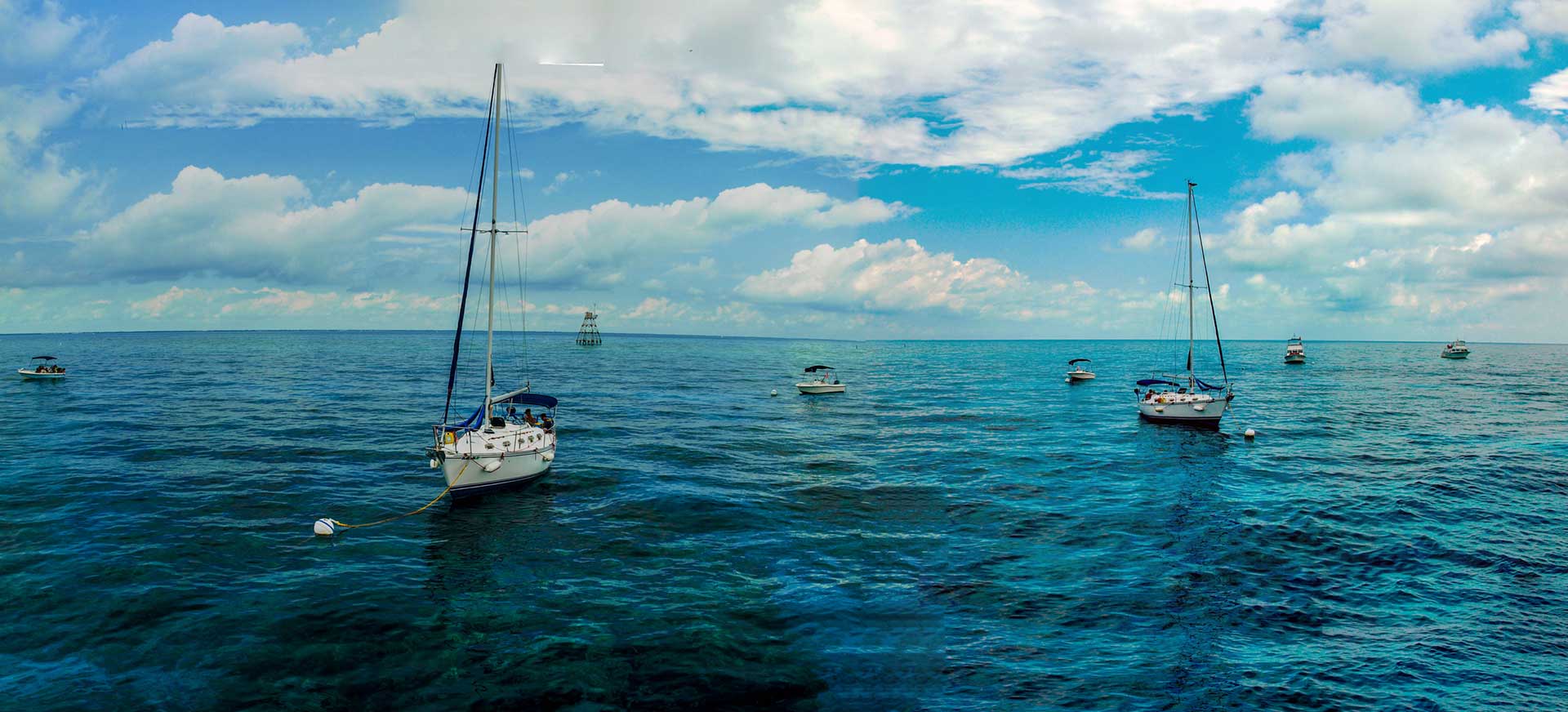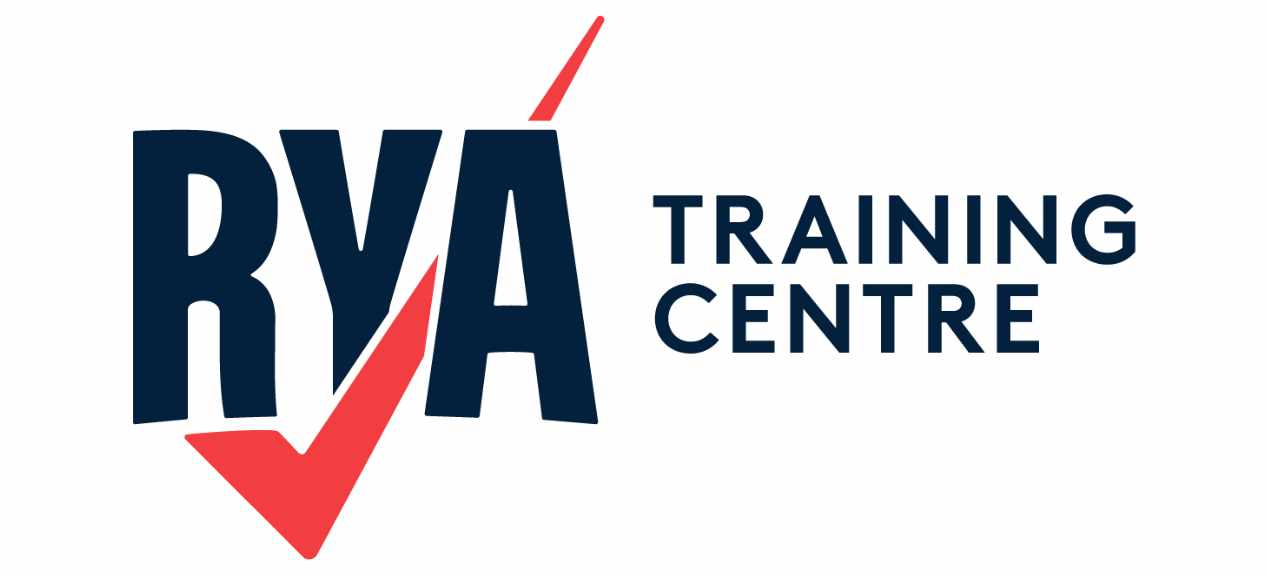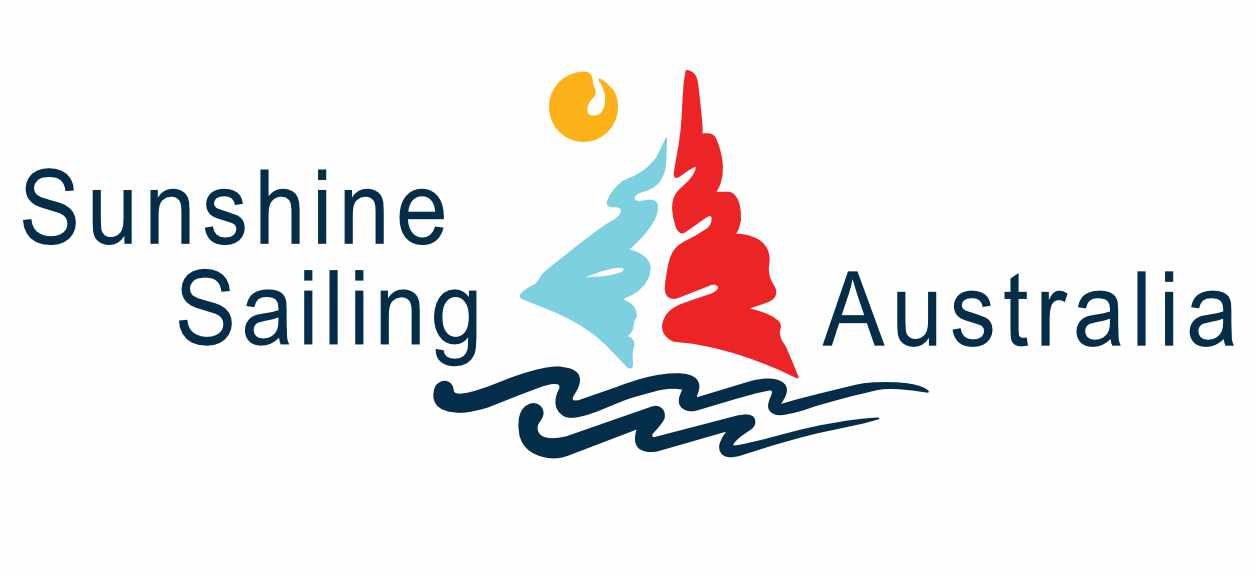What is ICC Certification?
The ICC – International Certificate of Competence is an essential, internationally recognised qualification for skippers who wish to sail in international waters, particularly in Europe. It serves as proof of sailing competence, ensuring that skippers possess the necessary skills and knowledge to operate their vessels safely and efficiently. Whether you’re chartering a yacht or navigating inland waterways, the ICC is often required by local authorities and charter companies to meet legal requirements, making it a crucial certification for those planning to sail abroad.
Why Do You Need the ICC?
In many European countries, having an ICC certificate is mandatory if you intend to sail a yacht, powerboat, or other watercraft. Without this internationally recognised document, you may face legal restrictions, fines, or even be prohibited from using a boat in certain countries. The ICC provides you with the confidence and legal backing needed to sail safely and responsibly across borders.
Importance of ICC Certification for Skippers
By obtaining ICC certification, skippers not only comply with international and local regulations but also enhance their sailing capabilities, safety, and overall sailing experience.
Legal Compliance
Many European countries mandate the ICC for skippers navigating their waters, both inland and coastal. It acts as proof of competence, ensuring that skippers meet the local regulations and safety standards. Without an ICC, you might face legal issues or be unable to sail in certain regions.
Chartering a Vessel
When chartering a boat in Europe, charter companies typically require skippers to hold an ICC. It reassures the charter company that the skipper is capable of handling the vessel safely, minimising the risk of accidents or damage.
International Recognition
The ICC is widely recognised across Europe and increasingly in other parts of the world, including Australia. Holding an ICC provides skippers with a credential that is respected and acknowledged internationally, facilitating smoother sailing experiences in various countries.
Enhanced Safety
The ICC assessment covers essential areas such as safety procedures, navigation, and boat handling. By obtaining an ICC, skippers demonstrate their commitment to safe sailing practices, ensuring the safety of their crew and vessel.
Confidence & Credibility
Possessing an ICC boosts a skipper’s confidence and credibility. It provides assurance that they have been assessed and certified by a recognized authority, which can be particularly beneficial when sailing in unfamiliar waters or when hiring crew.
Compliance with Local Regulations
In addition to proving competence, the ICC helps skippers comply with both the regulations of the country they are visiting and the country where the boat is registered. This dual compliance is crucial for avoiding fines, legal issues, and other complications.
Personal Achievement
Obtaining the ICC is a significant milestone for any sailor. It represents a recognized standard of competence and is a testament to the skipper’s dedication to honing their sailing skills and knowledge.
Facilitates Sailing in Diverse Conditions
The ICC ensures that skippers are prepared to handle various sailing conditions and environments, from coastal waters to inland waterways. This versatility is essential for those who wish to explore different sailing destinations.
ICC Certification Process
How to Obtain Your ICC Certification
At our sailing school, obtaining your ICC certification is straightforward. Whether you’re a seasoned sailor or someone looking to upskill, we offer flexible paths to help you achieve your ICC, the International Certificate of Competence.
You can:
- Complete an RYA Course
If you complete an RYA Day Skipper course, you may automatically qualify for the ICC. - Take an ICC Test
Alternatively, you can book an ICC assessment where you’ll be evaluated on your practical and theoretical knowledge.
We provide both options to accommodate your experience and learning preferences.

1. Completing an ICC Assessment
- This assessment is a combination of practical and theoretical components. It is conducted on the water and assesses your skills and knowledge to ensure they meet the required standards.
- The ICC assessment can be completed on your own boat or on a vessel provided by an accredited ICC Assessment Centre.
- If you choose to use your own boat for the test, you are responsible for the vessel at all times. The assessment must begin and end at the Training Centre.

2. Completing an ICC Related Course:
- Successfully completing our Beginner to ICC course or the RYA Competent Crew and Day Skipper theory and practical courses.
- Our course covers all the necessary skills and knowledge required for the ICC, including navigation, pilotage, boat handling, and safety procedures.
- The RYA course covers the same requirements for the ICC
Practical and Theoretical Assessment
The ICC assessment is designed to evaluate both your practical skills and theoretical knowledge. Here’s what the assessment entails:

Practical Assessment
- Safety
Demonstrate your understanding of safety procedures and the use of safety equipment. - Rules and Regulations
Show your knowledge of the International Regulations for Preventing Collisions at Sea (COLREGs). - Pilotage
Conduct pilotage exercises, including planning and executing a passage, and navigating in confined waters. - Navigation
Prove your ability to use navigational aids, charts, and instruments to determine your position and plan your route. - Berthing and Close-Quarter Handling
Maneuver the boat in close quarters, including berthing and departing from a dock. - Man Overboard Recovery
Execute a man overboard recovery drill efficiently and safely. - Emergency Situations
Handle various emergency scenarios, including fire, flooding, and equipment failure. - Boat Handling Under Power and Sail
Operate the boat under power and sail, demonstrating control and competence in various conditions.

Theoretical Assessment
- Navigation
Understand and apply navigational techniques, including tidal calculations and the use of electronic aids. - Pilotage
Plan and execute pilotage passages, including entry and exit from harbors and marinas. - Safety and Regulations
Knowledge of safety procedures, equipment, and maritime regulations. - Weather
Interpret weather forecasts and understand the impact of weather on sailing. - Maintenance
Basic understanding of boat maintenance and the ability to perform routine checks and repairs.
The ICC assessment ensures that you have the necessary skills and knowledge to operate a pleasure craft safely and competently in various conditions. Upon successful completion, you will be awarded the ICC, valid for five years and recognized internationally.
By following these steps and completing the required assessments, you can obtain your ICC and enjoy the confidence and freedom to sail in many countries worldwide.
Categories and Endorsements
The International Certificate of Competence (ICC) can be issued or endorsed for various categories and types of vessels. Each category and endorsement is relevant to the type of boat you plan to use and the waters you intend to navigate. Understanding these categories and endorsements ensures that your ICC covers the specific needs of your boating activities.
Coastal Waters
The Coastal Waters endorsement allows you to operate a pleasure craft in coastal areas, including nearshore waters and coastal passages. This endorsement is crucial for those planning to sail along the coastline of European countries or other regions where an ICC is required. It certifies that you have the necessary skills and knowledge to handle the challenges of coastal navigation, including tides, currents, and varying weather conditions.
Inland Waterways Endorsement (CEVNI)
The Inland Waterways endorsement, also known as the CEVNI (Code Européen des Voies de la Navigation Intérieure), is necessary for those planning to navigate the inland waterways and canal systems of Europe. This endorsement requires passing a theory test that covers the specific rules, regulations, and signage used on inland waterways. The CEVNI endorsement ensures that you can safely and competently navigate rivers, canals, and other inland waters, which often have different navigational challenges compared to coastal waters.
Powerboats up to 10 Metres LOA
This category covers powerboats that are up to 10 metres in length overall (LOA). The endorsement for powerboats up to 10 metres LOA demonstrates your ability to handle smaller powerboats, which are commonly used for day trips, fishing, and short coastal cruises. This endorsement is ideal for those who prefer the maneuverability and ease of handling of smaller vessels.
Powerboats of 10 Metres LOA and Over
For those operating larger powerboats, this endorsement covers vessels that are 10 metres LOA and over. Larger powerboats often require more advanced handling skills and knowledge due to their size and power. This endorsement certifies that you are competent in operating larger powerboats, which may be used for extended cruising, offshore passages, and more complex navigational situations.
Sailing Boats
The Sailing Boats endorsement is for those who wish to operate sailing yachts. This endorsement verifies that you have the necessary skills and knowledge to handle sailboats, including sail handling, rigging, and navigation under sail. Whether you plan to sail in coastal waters or embark on longer voyages, this endorsement ensures you are prepared for the unique challenges of sailing.
Personal Watercraft
The Personal Watercraft endorsement applies to jet skis and other similar types of watercraft. This endorsement certifies that you understand the safety procedures, handling techniques, and regulations specific to personal watercraft. It is essential for those who enjoy the high-speed excitement and agility of jet skis, ensuring that they operate these vessels safely and responsibly.
Booking & Pricing
Booking Your ICC Assessment
Booking your ICC test is a straightforward process designed to get you certified as efficiently as possible.
ICC Price Options
The cost of obtaining your ICC can vary based on whether you use your own boat or a vessel provided by the training centre. Here are the price options:
Own Boat ICC Assessment:
- One candidate: $550ea (4 hours)
- Two candidates: $495ea (7 hours)
- One candidate with 3 hours of training plus assessment: $950 (7 hours)
Assessment on Sunshine Sailing Australia’s Yacht:
- One candidate: $795ea (4 hours)
- Two candidates: $650ea (7 hours)
- One candidate with 3 hours of training plus assessment: $1250 (7 hours)
These prices include the assessment fee and, if applicable, the cost of using a training vessel.
What to Bring on the Day of the Test
To ensure a smooth and successful assessment, make sure you bring the following items on the day of your ICC test:
1. Completed Application Form:
Bring the filled-out ICC application form you downloaded and completed.
2. Proof of Residency:
Provide documents that confirm your residency status. This is particularly important for applicants who are not UK nationals.
3. Passport Photograph:
A recent passport-sized photograph is required for your ICC application. Ensure that the photo meets the standard passport photo requirements.
4. Payment Details:
Be prepared to pay any remaining fees on the day of the test. Check with the training centre beforehand to understand their accepted payment methods.
5. Identification:
Bring a valid form of identification, such as a passport or driver’s license, to verify your identity.
6. Crew (if applicable):
If you are using your own boat for the assessment, make sure to bring at least one crew member. This is necessary for certain maneuvers and emergency procedures that require additional hands.
7. Appropriate Clothing and Gear:
Dress in suitable sailing attire, including non-slip shoes, a hat, sunscreen, and waterproof clothing if necessary. Safety gear, such as life jackets, should also be brought along.
8. Navigation Tools and Charts:
Carry any navigation tools and charts you typically use, as these may be part of the assessment.
On the Day:
- Arrive at the training centre early to allow time for preparation and any last-minute instructions from the assessor.
- Listen carefully to the briefing provided by the assessor, and make sure you understand the sequence of the test and what is expected of you.
By ensuring you have all the necessary documents, equipment, and preparations, you can focus on demonstrating your skills and knowledge effectively during the ICC assessment.

ICC for Australia & Global Sailors
While the ICC is primarily aimed at those sailing in European waters, it’s increasingly recognised in other parts of the world, including Australia. If you’re an Australian sailor planning to explore international waters, obtaining an ICC certificate is highly recommended to ensure your adventures abroad go smoothly.
ICC and RYA Australia
RYA Australia partners with us to offer the most comprehensive sailing courses that lead to ICC certification. Our experienced instructors will guide you through the process, ensuring that you are fully prepared to meet the ICC requirements, whether you’re sailing a monohull, catamaran, or powerboat.
Ready to Get Your ICC?
At Sunshine Sailing Australia, we make the process of obtaining your International Certificate of Competence as seamless as possible. With our practical training courses, supportive environment, and flexible assessment options, you’ll be equipped to sail the world with confidence.
ICC, The International Certificate of Competence
FAQs for Sailors
The ICC International Certificate of Competence is an essential qualification for sailors planning to sail in international waters, particularly in Europe. Below, we answer the most frequently asked questions to help you understand what the ICC is, why you need it, and how to obtain it.
What is the International Certificate of Competence (ICC)?
The ICC is an internationally recognised certificate that verifies a skipper’s competence to operate a pleasure craft. It’s required in many countries, especially in Europe, to show that you have the necessary skills and knowledge to handle your vessel safely.
Where is the ICC recognised?
The ICC is recognised in most European countries, including popular sailing destinations like France, Greece, Italy, Spain, and Croatia. It’s also accepted for sailing in certain inland waterways, like the canals in Germany or the rivers in the Netherlands. For exact details, it’s best to check the specific country’s maritime regulations.
How do I get an ICC?
To obtain an ICC, you typically need to pass a practical and theoretical assessment. This can be done by taking an RYA Day Skipper course or by completing an ICC test at an accredited training centre. For those with sailing experience, you may be able to apply directly by demonstrating your skills through an assessment.
How long is the ICC valid for?
The ICC is typically valid for five years. After that, you will need to renew your certificate, which usually involves submitting a renewal application to the issuing authority.
Can I use my RYA qualifications to get an ICC?
Yes! Many RYA qualifications, such as the RYA Day Skipper certificate, can be used to apply for an ICC without taking an additional test. If you’ve completed an RYA practical course, you can submit your certificate as proof of competence.
Can I use my RYA qualifications to get an ICC?
Yes! Many RYA qualifications, such as the RYA Day Skipper certificate, can be used to apply for an ICC without taking an additional test. If you’ve completed an RYA practical course, you can submit your certificate as proof of competence.
Who needs an ICC?
Any sailor or skipper planning to sail or charter a yacht in European waters is likely to need an ICC. Many countries in Europe require skippers to hold an ICC, especially when chartering a yacht or sailing on inland waterways. If you’re sailing in non-European waters, it’s a good idea to check the local requirements, but an ICC can still be useful for showing competence.
What types of vessels does the ICC cover?
The ICC covers a wide range of pleasure craft, including sailing yachts, motorboats, and personal watercraft. You can choose the type of endorsement you need based on the type of vessel you plan to operate – whether it’s sail or motor, or for use in coastal or inland waters.
What is the difference between coastal and inland ICC?
The coastal ICC allows you to skipper a boat in coastal waters, while the inland ICC is specific to inland waterways, such as rivers and canals. For inland waters, you may also need a CEVNI endorsement, which covers the rules and regulations for navigating inland waterways.
Can I take the ICC test on my own boat?
Yes, you can take the ICC assessment on your own boat, provided it meets the necessary safety standards and is suitable for the test. Some training centres may also offer the option to use one of their boats for the assessment.
How much does it cost to get an ICC?
The cost of obtaining an ICC varies depending on the training centre and whether you need to take a course or just the assessment. Typically, the fees include the assessment cost and the application fee for issuing the certificate.



